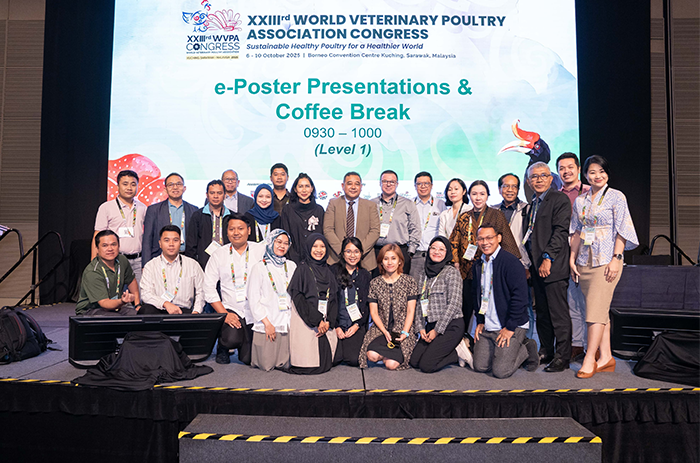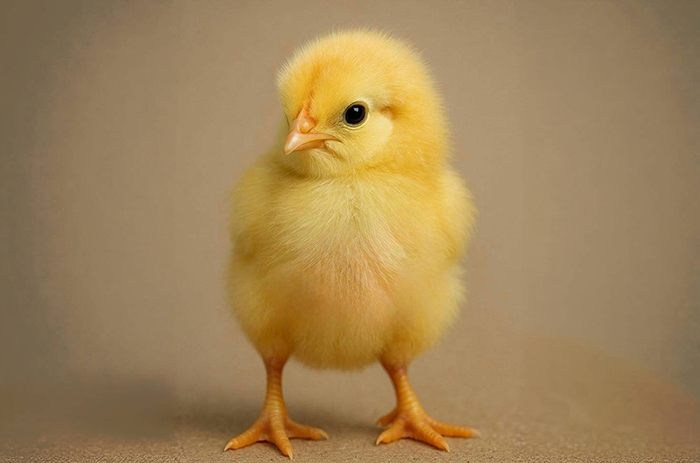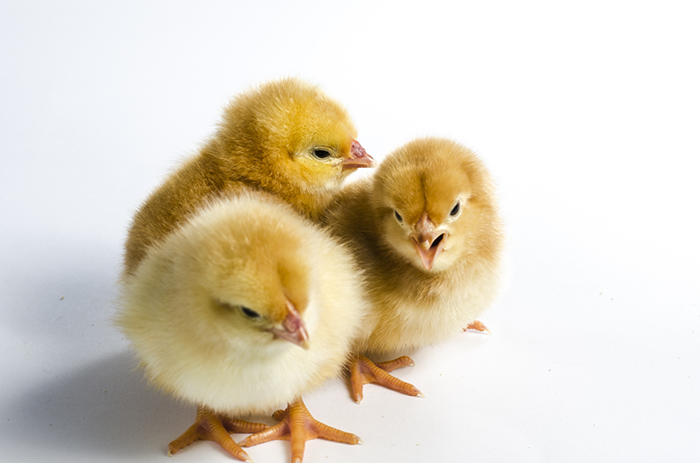

Identify Inclusion Body Hepatitis Virus
Inclusion Body Hepatitis (IBH) is a disease caused by Adenovirus. Generally, chickens infected with IBH do not show clear clinical symptoms. The chicken will look pale, depressed, weak and indicating the presence of other secondary infections. This disease can cause sudden death in 10-30% and increasing of FCR, which causes losses for breeders.
The morbidity of IBH is lower than the mortality. However, chickens that are infected with IBH but do not show clinical symptoms can be agents that spread the disease. Apart from that, transmission can also occur through dirt, feed, water, and environments contaminated with viruses. IBH transmission can also occur from hens to chick by eggs.
How to find out if a chicken is infected with IBH is through necropsy, isolation, and histopathology. Necropsy can be performed to see anatomy pathological changes. Chickens infected with IBH can be seen by swelling of the liver, discoloration of the liver to brownish yellow, bleeding like petechiae, and hemorrhage in the liver can be found as well as shown in Figure 1. The kidneys also look pale, and swollen, accompanied by bleeding. The spleen and bursa become smaller, and there are Hemorrhages in muscle tissue (Figure 2). Other than that, in chickens infected with IBH, pericardial hydrops were also found (Figure 3).
Figure 1. Liver with IBH Figure 2. Hemorrhages in muscle tissue Figure 3. Hydrops Pericard
Histopathological examination was carried out microscopically to see the presence of degeneration and necrosis in the liver and to see the presence of intra-nuclear inclusion bodies in the liver parenchymal cells (Figure 4).
Until now, chickens infected with IBH cannot be treated. For this reason, it is necessary to prevent IBH, such as biosecurity and vaccinations. In biosecurity management practices, the selection of disinfectants must be of great concern because the viruses that cause IBH are resistant to acids and chemicals such as ether and chloroform. Disinfectants that can be an option to prevent this disease are disinfectants that contain formaldehyde and iodine such as Agricid.
The IBH vaccination program with Vaksimune IBH Duo can also be done to prevent IBH. This vaccine is an inactivated vaccine containing Adenovirus ADN032 serotypes 8 b and 11. IBH vaccination for breeder chickens can be carried out at the age of 10-12 weeks and 15-18 weeks at a dose of 0.5 ml/chicken. Vaccination in broiler chickens can be done at the age of 7-10 days at 0.2 ml/chicken.
By: drh. Annisa Rofiqoh
You may also like

Vaksindo at VIV MEA 2025: A Memorable Week of Inno...
Vaksindo was proud to take part in VIV MEA 2025, h...

CAV Disease in Chickens: Key Symptoms and Proven P...
Chicken Anemia Virus (CAV) is a virus that infects...

Strengthening Partnerships for a Sustainable Food...
We were honored to welcome H.E. Mirza Nurhidayat,...

Vaksindo at WVPA Congress 2025: Advancing Poultry...
Vaksindo is proud to announce our active participa...

One-Stop Solution for Effective Hatchery Vaccinati...
In the modern poultry industry, hatchery vaccinati...

Innovation in the Poultry Industry: Trends in Reco...
The poultry industry continues to innovate to prov...